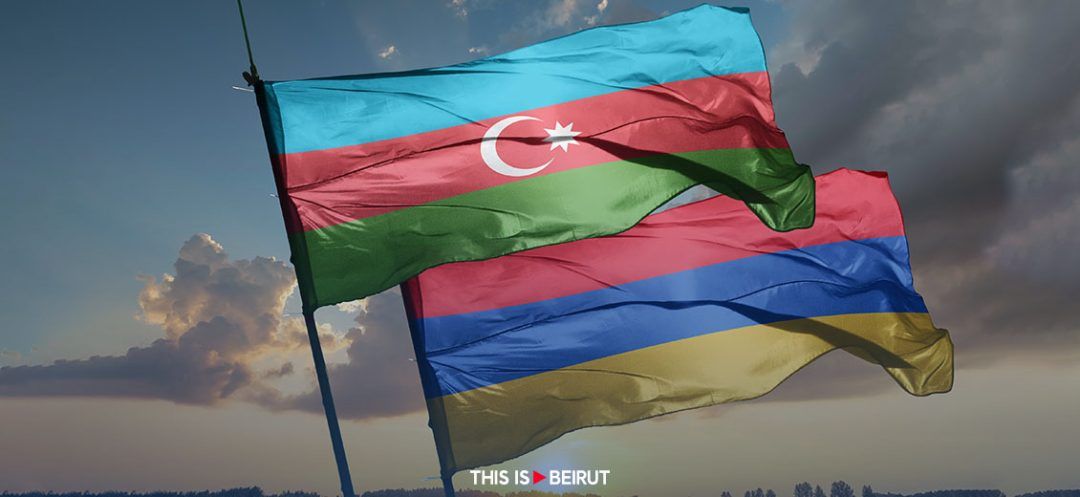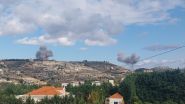
The Armenia-Azerbaijan conflict over the contested region of Nagorno-Karabakh tends to resurface periodically, only to dwindle once armed hostilities cease. International attention wanes thereafter, despite the human casualties and the displacement of tens of thousands of people from their homes and lands.
Similarly, the displacement of Palestinians to neighboring countries, and to other regions across the globe, is a deeply painful reality. Thousands of Palestinians worldwide are living a life marked by indignity and hardship, stripped of their livelihoods and properties.
The regional (Arab-Israeli) conflict is a vivid example of how international and regional powers align themselves in intricate and multifaceted fronts. It highlights their tendency to capitalize on any regional conflict as a battleground to settle their disputes and conflicts through proxies to serve their strategic interests, while avoiding direct confrontation that will implicate their territories and populations. This consistently comes at the expense of the people who bear the heavy costs of conflicts that are beyond their control and influence.
Lebanon, much like many other countries, has endured by becoming an arena for settling scores that exceed its capabilities, involving regional and international stakeholders. This reality unfolded on many occasions, the most recent one being the devastating and protracted civil war (1975-1990), which claimed the lives of at least 150,000 individuals from different areas across Lebanon, denominations, and political orientations.
In the Armenian-Azerbaijani conflict, the map of alliances and counter-alliances falls into a predictable pattern: Azerbaijan is supported by Turkey, Israel and Pakistan, while Armenia receives backing from Russia, Iran and India. It turns out that Iran's backing of Armenia has prompted Israel to support its rival, Azerbaijan, a pattern mirrored by long-standing foes, India and Pakistan.
The conflict between Armenia and Azerbaijan is a multifaceted one, encompassing political, geographical and ethnic dimensions. It started following the independence of both nations from the Russian Empire in 1918, and lasted until 1922, when they joined the Soviet Union. Tensions remained subdued until 1991, the year of the Soviet Union’s collapse and the subsequent dissolution and independence of the former Soviet republics. This was mainly due to the Soviet-era centralized control led by Moscow, and not to other factors. In 1992, the "Minsk Group" was formed, consisting of 17 nations, led by the United States, Russia and France. Its aim was to broker a political resolution to the triangular conflict involving Armenian Christians, Turkish Muslims and Persians, over a rugged mountainous region covering 4400 square kilometers.
This conflict comes at a pivotal time for Armenia, which has taken significant measures in recent years to forge closer ties with Washington, often at the expense of its historical relationship with Moscow. Part of the reasoning behind this strategic choice is linked to Russia's stance on the regional conflict. In this context, Moscow is determined to prevent the escalation of such a severe conflict between two neighboring states that have been – for decades – within its sphere of influence.
Armenia maintains its membership in the Collective Security Treaty Organization, a military alliance led by Russia. The Armenian city of Gyumri hosts a Russian military base with thousands of soldiers. While some perceive the Armenian move towards the West and away from Moscow as merely aimed at "improving conditions" in their relationship with Moscow, others see this shift as an imperative one due to Russian "manipulation" and Moscow’s attempt to strike a middle ground in the conflict with Azerbaijan.
It has become clear that the recent military developments in the region, in light of Azerbaijan's military progress, will have far-reaching implications for over 120,000 Armenians who lived there and now fear ethnic cleansing following Azerbaijan's takeover. This represents a new wave of displacement that will not easily be reversed unless serious consideration is given to international handling of the contested region. Unfortunately, such a solution seems unlikely in the current political climate.
Similarly, the displacement of Palestinians to neighboring countries, and to other regions across the globe, is a deeply painful reality. Thousands of Palestinians worldwide are living a life marked by indignity and hardship, stripped of their livelihoods and properties.
The regional (Arab-Israeli) conflict is a vivid example of how international and regional powers align themselves in intricate and multifaceted fronts. It highlights their tendency to capitalize on any regional conflict as a battleground to settle their disputes and conflicts through proxies to serve their strategic interests, while avoiding direct confrontation that will implicate their territories and populations. This consistently comes at the expense of the people who bear the heavy costs of conflicts that are beyond their control and influence.
Lebanon, much like many other countries, has endured by becoming an arena for settling scores that exceed its capabilities, involving regional and international stakeholders. This reality unfolded on many occasions, the most recent one being the devastating and protracted civil war (1975-1990), which claimed the lives of at least 150,000 individuals from different areas across Lebanon, denominations, and political orientations.
In the Armenian-Azerbaijani conflict, the map of alliances and counter-alliances falls into a predictable pattern: Azerbaijan is supported by Turkey, Israel and Pakistan, while Armenia receives backing from Russia, Iran and India. It turns out that Iran's backing of Armenia has prompted Israel to support its rival, Azerbaijan, a pattern mirrored by long-standing foes, India and Pakistan.
The conflict between Armenia and Azerbaijan is a multifaceted one, encompassing political, geographical and ethnic dimensions. It started following the independence of both nations from the Russian Empire in 1918, and lasted until 1922, when they joined the Soviet Union. Tensions remained subdued until 1991, the year of the Soviet Union’s collapse and the subsequent dissolution and independence of the former Soviet republics. This was mainly due to the Soviet-era centralized control led by Moscow, and not to other factors. In 1992, the "Minsk Group" was formed, consisting of 17 nations, led by the United States, Russia and France. Its aim was to broker a political resolution to the triangular conflict involving Armenian Christians, Turkish Muslims and Persians, over a rugged mountainous region covering 4400 square kilometers.
This conflict comes at a pivotal time for Armenia, which has taken significant measures in recent years to forge closer ties with Washington, often at the expense of its historical relationship with Moscow. Part of the reasoning behind this strategic choice is linked to Russia's stance on the regional conflict. In this context, Moscow is determined to prevent the escalation of such a severe conflict between two neighboring states that have been – for decades – within its sphere of influence.
Armenia maintains its membership in the Collective Security Treaty Organization, a military alliance led by Russia. The Armenian city of Gyumri hosts a Russian military base with thousands of soldiers. While some perceive the Armenian move towards the West and away from Moscow as merely aimed at "improving conditions" in their relationship with Moscow, others see this shift as an imperative one due to Russian "manipulation" and Moscow’s attempt to strike a middle ground in the conflict with Azerbaijan.
It has become clear that the recent military developments in the region, in light of Azerbaijan's military progress, will have far-reaching implications for over 120,000 Armenians who lived there and now fear ethnic cleansing following Azerbaijan's takeover. This represents a new wave of displacement that will not easily be reversed unless serious consideration is given to international handling of the contested region. Unfortunately, such a solution seems unlikely in the current political climate.
Read more




Comments